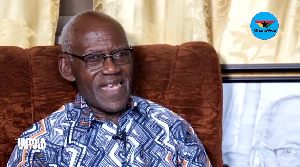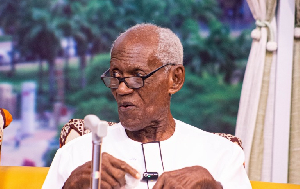NEW YORK, May 3 (Reuters) - A federal appeals court said Monday it would consider whether to stop the deportation of a 29-year-old woman who could face genital mutilation in Ghana because she had premarital sex.
At issue is whether Adelaide Abankwah, 29, has provided convincing evidence that she will be subjected to genital cutting as punishment for having had intercourse with a boyfriend.
After hearing arguments on Monday, the U.S. Second Circuit Court of Appeals said it would take the matter under consideration.
The case comes before the appeals panel three years after the Immigration and Naturalisation Service decided that women could claim genital mutilation as a form of persecution and seek asylum in this country.
The decision followed widespread publicity over another genital cutting case, that of Fauziya Kassindja who fled Togo in 1994 to avoid mutilation. Kassindja had been detained for more than a year while her case was pending.
``It's sad that people don't understand the culture Adelaide comes from and they don't understand how much courage it takes to escape a situation you don't have control over, to run away from everything you know and come to a strange country,'' Kassindja said in statement released after the hearing.
``We both came here because we thought in this country we would find refuge. Then we got here and nobody believed us and we were treated inhumanely,'' said Kassindja, who is now a college student in New York.
Abankwah was born into a small tribe of people who live in central Ghana. Abankwah's mother was designated the tribe's ``queen mother,'' leading in religious rituals and setting rules for other women.
After her mother died in 1996, Abankwah was chosen by tribe elders to become the next queen mother. Abankwah, who had had sex with a boyfriend, refused. She also refused to perform rituals intended to determine if she was a virgin or enter into an arranged marriage.
In certain tribes, genital mutilation is performed on all girls. In Abankwah's case, it was threatened as a punishment and she fled the country.
Abankwah has never been charged with a crime but has been held in detention since she arrived in the United States in March 1997.
Abankwah's case was appealed to the Second Circuit after numerous hearings before an immigration judge and the Board of Immigration Appeals. Although the immigration courts believed that Abankwah's fears were real, they held that she had not proven that she would be mutilated if she returned to Ghana.
``It is a great disappointment to see the INS today vigorously defending its denial of political asylum to Adelaide Abankwah,'' said Jessica Neuwirth, president of Equality Now, an international women's rights group that campaigned on behalf of Kassindja and Abankwah.
``It is painful to see another young African woman suffering so much in detention and losing years of her life because she stood up for herself,'' said Neuwirth.












